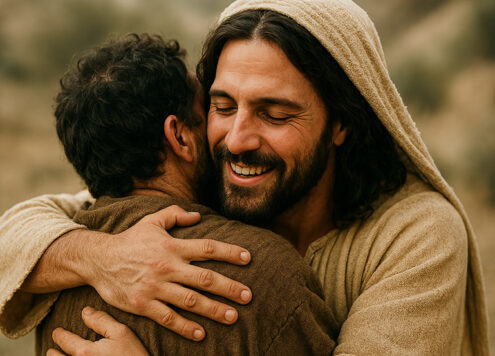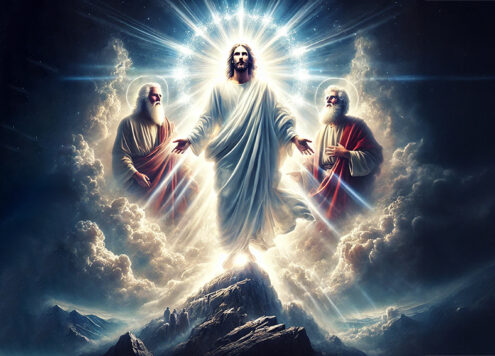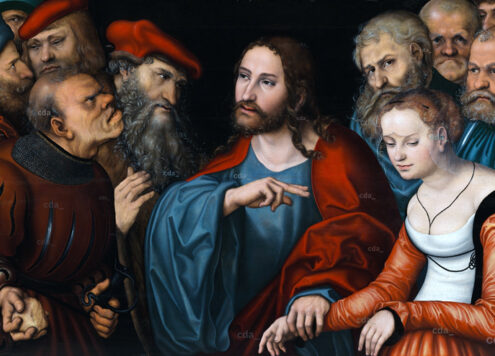—Luke, Chapter 15 : 1
When Jesus was criticized by the Pharisees for mingling with sinners and dining with them, he told them a parable about two sons. This parable is commonly referred to as the parable of the prodigal son. This is understandable because most people can identify with the younger son whose fall from grace was due to weakness of the flesh. But there are two sons in the story. The younger son’s vice was to squander his inheritance on loose living; the older son’s vice was self-righteousness. Which of these two sons, do you think, committed the greatest sin?
This parable could just as well be called the parable of the prodigal father, if by prodigal we mean lavish rather than wasteful. The father in the story represents God’s lavishness towards both his sons who were the objects of his unconditional love and forgiveness.
The younger son lost everything he had through irresponsible and dissolute living. Yet, the father received him back, unconditionally, after he repented of his former life-style. The older son, on the other hand, would not be reconciled with his younger brother. The gospel says that the older son “became angry” and “refused to enter the house” even when “his father came out and pleaded with him” to join in the festivities, celebrating the younger son’s return.
What then are we to make of this parable about the father and his two sons? Remember this parable was addressed by Jesus to the self-righteous Pharisees and Scribes who were critical of him for fraternizing with sinners. The two sons represent two types of sinners: those, like the younger son (the majority of people) who fall from grace through human weakness; and those, like the older son (self-righteous people like the Pharisees) who also fall from grace because they think they are better than others and do not need to repent.
The younger son in the parable, who repented of his sins, was reconciled. The older son, who could not bring himself to forgive the younger son, was not reconciled. The older son’s self-righteous behavior reminds one of the story of the Pharisee and the publican who went up to the temple to pray (Luke 18: 9-14 ). The Pharisee, who thought he was without sin, and condemned the Publican, committed the greater offense whereas the publican who, humbly, confessed his sin, left the temple justified.
The Lord reserves the harshest criticism for self-righteous people, saying that “tax collectors and prostitutes” will enter heaven before them. He regards self-righteousness as greater than sins of the flesh because it is a sin of pride that corrupts the spiritual life within. In Luke, chapter 15, we are confronted with the human weakness of the younger son who repented, and the self-righteousness of the older son who could not repent.
It is up to each person to look within to discover where your weakness resides, whether it is the self-righteousness pride and false sense of superiority of the older son or the self-indulgence and lack of discipline of the younger son.
You can be sure of one thing: your Father in Heaven will will forgive you if you have a contrite heart.
—Fr. Hugh Duffy











Recent Comments